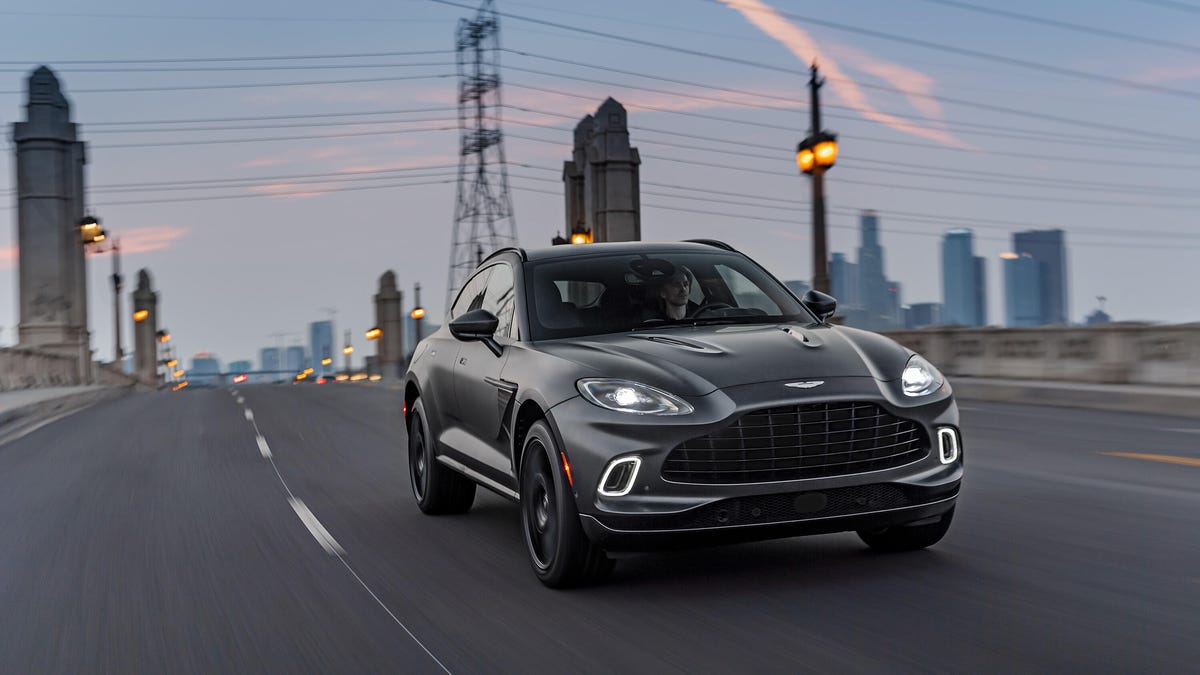Aston Martin's nonhybrid engines will only live on track
The company's road-going models will all be hybrid or battery-electric in the next few years.

The awesome DBX SUV is getting a hybrid version later this year as the company moves toward electrification.
Aston Martin makes gorgeous cars with powerful and exciting powertrains that produce huge, thundering noises that stir the soul -- though that is likely to change somewhat in the future. By that, I mean that according to a report Wednesday by Automotive News Europe, those evocative internal combustion engines will only live on in track-only vehicles.
Now, before you pick up your pitchforks, it's important to understand that this change affects explicitly nonhybrid internal combustion engines. Aston will continue to offer big, powerful engines for the road with differing levels of hybrid technology, in addition to purely battery-electric vehicles. It's also important to understand that the change won't happen for a while -- not that most of us can really swing the purchase of a new Aston Martin anyway.
Aston Martin plans for 50% of its sales to be battery-electric vehicles (BEV) by 2030, with 45% being some kind of hybrid and the final 5% being track-only purely internal combustion vehicles -- cars like the Vulcan, for example.
"We understand that having hybrid and electric options for our vehicles is imperative to the company's future in this industry and our partnership with Mercedes-Benz AG is fundamental to our hybrid and EV plan," Aston Martin CEO Tobias Moers wrote in the company's annual report. "Our ambition is that by 2025 every one of our cars will have an electrified powertrain (hybrid) or be pure electric-driven."
Aston's first BEV is slated to come out in 2025, according to chief investor Lawrence Stroll, but the company's electrification efforts are already underway, with a mild-hybrid version of the excellent DBX SUV expected later this year and a plug-in hybrid version coming sometime after that.

